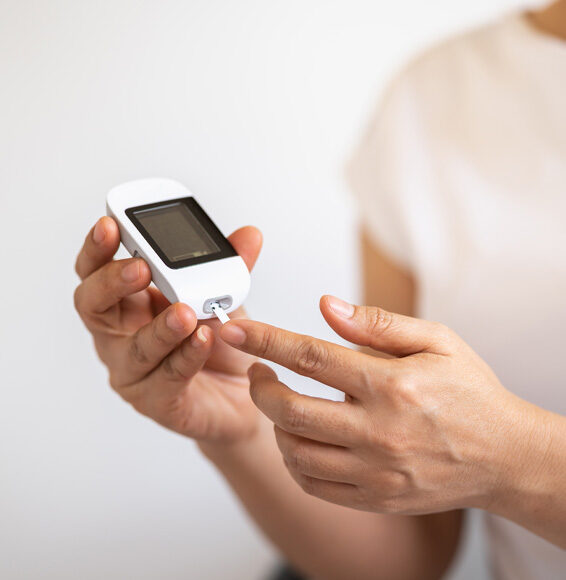
Diabetes mellitus
Diabetes mellitus is a disorder characterized by a lack or reduced production of insulin, the hormone that breaks down food into sugar, thus causing increased blood sugar (glucose) and hyperglycemia. This sugar metabolism disorder can lead to blindness, kidney failure, nerve damage and hardening of the arteries. The endocannabinoid system plays an important role in the balance of energy distribution in the body, and in the case of metabolism, the distribution of glucose and lipids.
The dysfunction of this system, due to deficiency or other reason, disrupts the metabolic processes and leads to cardiometabolic risk, obesity and type 2 diabetes. In the endocrine pancreatic cells, there are CB1 and CB2 cannabinoid receptors, whose activation enhances the secretion of insulin. On the other hand, oxidative stress and inflammation play an important role in the development of diabetes and its complications. Here comes Cannabidiol (CBD) with significant antioxidant and anti-inflammatory effects. People who take CBD do not develop diabetes as often as those who don’t take CBD (30% vs. 86%). Cannabinoids affect metabolic processes and reduce the risk of diabetes.
The anti-inflammatory properties of CBD, especially CBG, treat various diseases such as diabetes, atherosclerosis and cardiovascular diseases. Cannabidiol is a useful tool in treating obesity-related diseases such as type 2 diabetes, by increasing the amount of energy that the body burns. . Cannabis is associated with a lower risk of obesity, lower BMI and lower risk of type 2 diabetes. CBD is suitable for the prevention and treatment of diabetes mellitus.
But beyond prevention...
Cannabinoids also protect against the complications of diabetes, such as diabetic retinopathy, which is a common cause of blindness and requires the use of antioxidants to prevent it. CBD administration for 1-4 weeks reduces oxidative stress and vascular necrosis factors and protects against diabetic retinopathy.
Cannabidiol reduces neurotoxicity, inflammation and retinal damage. Vascular neuroinflammation in diabetic retinopathy can be also treated with CBD. Non-psychotropic CBD is a great anti-inflammatory, neuroprotective and therapeutic agent.







